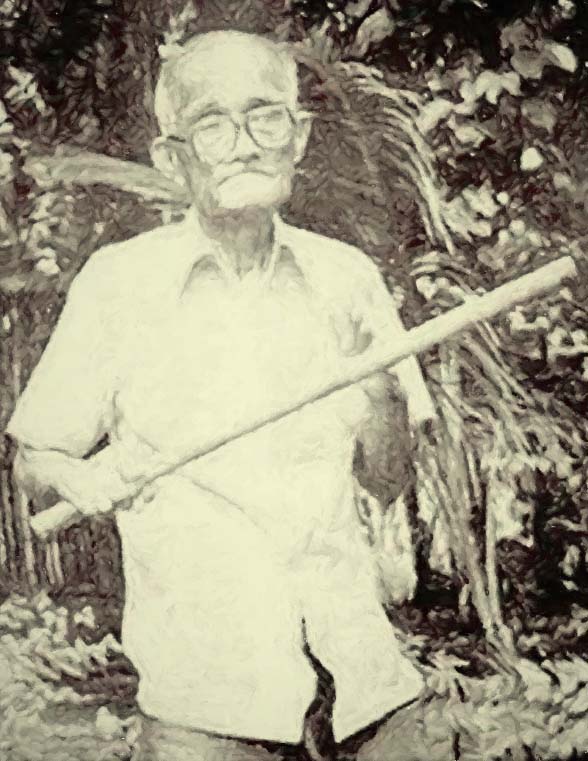

The Lineage of De Campo 1-2-3 Original
The story of De Campo 1-2-3 Original is the story of a master who forged a system in the crucible of real-world combat. Its founder, Grandmaster Jose D. Caballero (1907-1987), was a native of Toledo, Cebu, an area renowned for its formidable stick fighters. In his youth, Caballero was a keen observer at town fiestas, studying the diverse tactics of practitioners in the brutal, no-holds-barred stick fights known as “Juego Todo.” In these contests, fought without armor, injury or even death were common outcomes. Watching these life-and-death struggles, a young Caballero began to analyze what worked, what failed, and what was missing from the arts he saw.
Driven to develop a system with superior techniques that could not be easily countered, Grandmaster Caballero spent years refining his methods. In 1925, at the age of 18, he formally named his art De Campo Uno-Dos-Tres Orihinal. He then proceeded to test it in the unforgiving arena of Juego Todo, becoming the undefeated champion of his era. Unlike the often-mythologized histories of other masters, Caballero’s legacy is backed by a documented list of the formidable arnisadors he vanquished in his prime, a testament to the proven effectiveness of his system.
GM Caballero was more than just a fighter; he was a complete craftsman of his art. His formidable skills were complemented by his talent in woodwork, which allowed him to personally customize his own fighting sticks to perfectly suit his methodology. He was also a man of his time, known to have an understanding of oraciones—traditional empowering prayers often written on spiritual items. This combination of pragmatic combat science and deep-rooted Filipino culture defined the man behind the art.
As his fame spread, other arnisadors began to avoid any Juego Todo match where his name appeared. A dedicated family man with twelve children to support, GM Caballero would travel to other parts of the country to compete, providing for his family with the prize money he earned. He also began teaching his system to a select number of students, ensuring its survival. The art was passed down through his sons, including Manuel “Mawe” Caballero, Salvador “Badur” Caballero, and Rolando “Lando” Caballero, who carried their father’s footsteps forward, ensuring that the legacy of De Campo 1-2-3 Original continues to be taught to dedicated practitioners today.
The Legacy of Jose Caballero and the Way of Juego Todo
In the world of Filipino Martial Arts, “Juego Todo” is more than a rule of combat; it’s an embodiment of the unbridled essence of battle where warriors, while not holding back, can still extend a measure of sympathy to their adversaries. This is a look into the history of Jose Caballero – a time when challenges were met with action, not mere words.
The Coffin Challenge: A Test of Nerve
A formidable challenger from Negros once dared Jose Caballero to a Juego Todo match, bringing with him a coffin as a macabre symbol of Jose’s impending doom. Whether born of intimidation or revenge, the challenger’s motives were ultimately irrelevant. The coffin remained empty. A single, decisive strike marred the opponent’s arm from hand to bicep, ending the battle swiftly and proving the foreboding symbol meaningless.
The “Defanging the Snake” Philosophy: Mastery in Seconds
Jose Caballero was renowned for his artistry in neutralizing adversaries without lethality, a technique known as “defanging the snake.” In the blink of an eye, he would disarm opponents, rendering their weapons useless. His triumphs were often sealed within mere seconds; he once mused that if a match extended beyond ten seconds, his adversary possessed formidable skills. In one memorable encounter, after being struck on the knee, Jose dropped to the ground and executed a breathtaking backhand “half strike” that shattered his opponent’s elbow with staggering power.
A Duel for Love: The Challenge of Hermogenes Libumfacil
The structure of Juego Todo challenges is best told through the tale of a pivotal duel involving Jose Caballero’s would-be father-in-law, Hermogenes Libumfacil. Vehemently opposed to the union of his daughter, Amparo, with Jose due to his lack of Spanish heritage, a challenge was issued. The rules were simple: a “badlit” (line) marked the boundaries, and stepping outside it meant defeat. As the battle commenced, Jose Caballero unleashed his signature De Campo combinations, leaving the highly skilled Hermogenes with little choice but to retreat defensively until he found himself beyond the line. Victory belonged to Jose Caballero, and love triumphed as he wed Manang Amparo.
A Documented Legacy: The Fight Record of Jose Caballero
The following are just some of the names that Jose Caballero defeated in Juego Todo matches:
1925 – Juan Carolla of Ilocos Sur
1936 – Horje Navado from San Carlos City
1939 – Anoy from nearby town Tangub in Misamis
1943 – Isidro Aguanta from Kanlaon, Negros Occidental
1945 – Alfredo Macalolan a Suban-on from Dinggonaa in Ozamis
1950 – Balbino Mancao and Tanciong Lopez in Ozamis

A Legacy's Crossroads: The Community of Guardians
The legacy of any great art is like a living fire, passed from one generation to the next. For De Campo 1-2-3 Original, that fire was forged in the indomitable spirit of Grandmaster Jose D. Caballero and passed through his sons, a birthright of immense value.
But a legacy, however powerful, is not a monument of stone; it is a commitment that demands constant tending. With the passing of generations, the path for one family is not always the chosen path for the next. As new interests arise, even the most profound heritage can be at risk of its essence being diluted, becoming a collection of transactions rather than a living tradition. When the torch is not carried with the same fire that forged it, the art itself stands at a crossroads.
It is at this crossroads that a new form of guardianship has taken root. This foundation was laid through decades of dedicated study and seven years of direct support for the Caballero family. From the pivotal insight shared by Rolando “Lando” Caballero, the 1-2-3 Striking Method was developed, creating a system to unlock the art’s structure for a global audience. But this was never a solitary effort. The true goal was not to create a single successor, but to forge a dedicated community.
Today, that community stands as the collective guardian of the art. A global network of practitioners and instructors has been built—each one honed through years of dedicated practice and promoted based on proven skill and deep understanding, not simply by paying for a certificate. We are a community that believes in earning our place, dedicated to preserving the art’s authentic essence while ensuring it continues to evolve with integrity.
A lineage is more than blood; it is a sacred responsibility carried by those with the passion to uphold it. We are the guardians, and our mission is to ensure that the indomitable spirit of Grandmaster Jose Caballero’s art is not just preserved, but that it thrives. We are committed to producing more skilled practitioners and dedicated instructors who will, in turn, carry the flame with honor for the generations to come.
